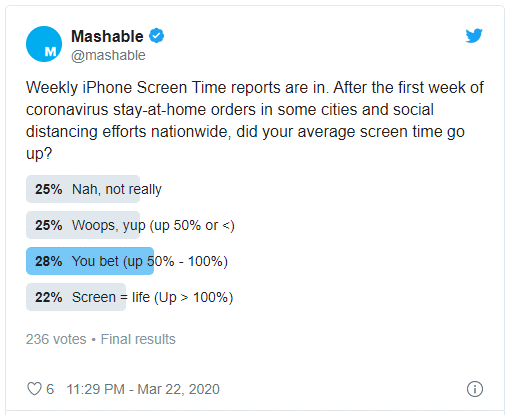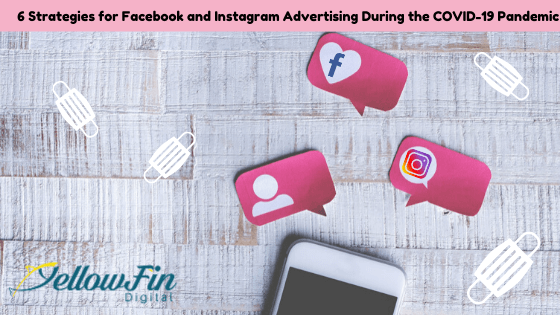We all know that these are unprecedented times. The COVID-19 virus has infected hundreds of thousands of people worldwide, overwhelmed the healthcare systems of some countries, and taken the lives of thousands of people. Our hearts and minds are with you if you or your family have been directly affected by this horrid illness. Many, many more folks are without work or are experiencing financial hardships. Our company, like so many others, is doing all we can to support our local community through volunteerism and donations. We hope you are, too!
The impact of the CoronaVirus Epidemic on businesses and the global economy is almost insane. With governments from all around the world encouraging citizens to practice ‘social distancing’, businesses that have regular contact with customers and offices and warehouses staffed by multiple employees have taken the greatest hit.
If you own your own business or manage a company, no matter how well you planned in the past and how prepared you were for a natural disaster, who could have foreseen a time when government orders and common sense would lead to massive business closures and in many cases, a need to send all your employees home?
And as the weeks go by, the risks associated with CoronaVirus and the restrictions on sustaining business operations are increasing. We know a time will come when businesses reopen, but can business owners sit on their hands in the meantime? No! There ARE ways to deal with even these hard times! Every business must now consider how to transform operations, how to fundamentally change the way they do business, unleash creativity, and quickly deploy innovative solutions.
So, what can you do to keep your business afloat during the COVID-19 crisis? Moreover, how can you leverage the opportunity to transform your company into a stronger, more resilient business?
Let’s start by dividing businesses into three categories based on the level of human contact they currently require.
1. Businesses That Rely on Direct Customer Contact
These are businesses that have storefronts where customers come in to shop or receive services. This category includes grocery stores, department stores, hardware and home improvement stores, barber and beauty salons, gyms, and many other businesses where most of the revenue is dependent on customers coming into close quarters with other customers or employees. Clearly, these businesses are most vulnerable in this time where social distancing has becoming a mantra for everyone on the planet. Many have closed their storefront businesses altogether, either in response to government advice or isolation mandates.
So, what do you do to ensure your storefront business survives, and thrives now and when this event is over?
- Explore innovative ways to transform your business and still get your goods or services into your customer’s hands
If you are selling groceries, or clothing, or gas, your customers still need your products. And customers still need and want to maintain personal hygiene and health. Your products and services are still in demand – it’s just that people are afraid to come in contact with you.
It’s time to implement or expand your online presence and offerings. In recent years, many businesses have slowly begun to develop an online presence. There was significant evidence of customer trends toward greater demand for online services long before the CoronaVirus interrupted our lives. What better time than NOW to put extraordinary effort into transforming your business model to take advantage of the public hunger for online products and services?
This probably means you need to dramatically improve your online presence. Whether it is rebuilding your website, or leveraging Search Engine Optimization (SEO), or refining your brand with a perfect logo, these are the shifts that will ensure many businesses survive, and thrive, during and after COVID-19.
Of course, reinventing the way you deliver products and services is also a big part of the equation. Using or developing your own online ordering software or apps – and coupling these with curbside pickup or delivery is a perfect example. We’ve seen larger retailers testing and expanding these options in recent years, and there’s no reason that savvy small businesses can’t do the same. Creativity is the key. Consider, for example, the repair service that has begun to offer online “how to” videos that guide customers through less complex small repairs free or for a small fee. The owner realizes that building goodwill now can help make sure his business is the one people choose for larger expenditures now and later.
- Shift your marketing messages to include assurances
Just boasting about how excellent your products and services are in the middle of this huge health crisis can come across as tone deaf, at best; and worse, it can sound like corporate greed. People are looking for different things today when picking a product or service provider. So, you need to change the way you market to your customers.
Your marketing strategy should include assurances that you are taking precautions to protect your customers and employees from exposure to the CoronaVirus, even when they come in direct contact. No one cares much that you are offering a 50% discount. Instead, people are interested in whether they can safely do business with you. They may even be ready to spend more to do business with a company who cares about its customers and employees. So, your service expertise and prices should likely be a secondary message, while your primary focus is on informing and reassuring.
For example, you can remind customers that you are making extra efforts to clean and sanitize your storefront. You can offer hand sanitizer. You may also consider policies that limit expose to at-risk groups, such as designated shopping hours for the elderly. Just make sure you are letting folks know about your efforts to ensure their safety!
- Demonstrate that you are well-educated about CoronaVirus
There are still many people running around calling CoronaVirus ‘just the flu’. Your customers probably won’t buy from unreliable companies that are not well-informed. If you demonstrate a sound understanding of the dangers of the virus and the risks to your customers and employees, without being overly alarming, you can gain their confidence that you are taking appropriate protective measures to prevent the spread of the virus.
There are many ways to communicate your commitment to their safety, including online content, e-mails, advertisements, etc. What’s important is that you project an image of a well-informed, knowledgeable, proactive company that has taken practical steps to deal with this public health emergency. An educated business owner will be the customer’s choice over an enterprise that isn’t taking this problem seriously.
2. Businesses That Rely on Deliveries or Service Interactions in the Home
This second group of companies does business in ways that require less personal contact because they deliver local products or services to customer’s homes, or via carryout or drive through models. Businesses that offer local online shopping and delivery services fall in this category. It includes small restaurants and grocers who use individual employees or services to deliver or offer drive through or curbside pickup; and local repair companies who must perform their services at the client’s home. Although these companies do not rely on direct point-of-sale contact in a storefront situation, they depend on human contact to connect their products or services with customers.
So, what are the implications of the COVID-19 event on these businesses? Though they are certainly better prepared to deal with the effects of the Pandemic, these businesses are suffering, too. Some, like grocers, are overwhelmed with sales and struggling to keep shelves stocked and sustain curbside pickup. Others, like local repair companies and many restaurants have experienced significant decreases in customer demand for their services. Both are dealing with a variety of employee concerns.
If you own or manage one of these businesses, you and your employees can avoid or minimize most human contact, but adjustments are still necessary. So here are a few things that you can do if you own or manage a business in this category.
- Like the first group of businesses, it’s time to improve and expand your online presence. Many of these companies have less than optimal web sites. Many do not take advantage of the benefits of online techniques like Search Engine Optimization (SEO), so they are missing opportunities to connect with their customers online. Some have operated both storefront and online sales venues, so their time and resources have been divided among the two and they have yet to prioritize and get full value from their online side of the business.
- If you operate a business like this, NOW is the time to move online development activities to the top of your list. You should be focusing heavily on strengthening your online presence – and on transforming your business model even further to take advantage of the public need for products and services delivered to their doorstep.
- Make sure your delivery persons are safe
The delivery people are putting themselves out there to deliver your products. Without them, your business could be in serious trouble. So, make sure to recognize their hard work and do your part to help them and show appreciation. In a recent statement, Jeff Bezos, CEO of Amazon, praised the efforts the delivery people are exerting and talked about increasing their pay. He has also taken this opportunity to offer temporary work to people who were laid off from places like restaurants and bars.
You can include similar strategies to show your gratitude to delivery people that you employ. Give them any incentives that you can. Also provide them with hand sanitizers and other protective gear. If you send folks into client’s homes, let your customers know that your employees will wear masks and gloves, and that they take actions to thoroughly sanitized once they enter and exit homes or businesses.
Enforce high safety measures in the workplace
Just imagine a company sending out a parcel with Coronavirus and being the cause of affecting people in the receiving household. The safety measures you put in place in your workspace, including warehouse and shipping, are not only for the good of the employees, but also for your customers.
So, put measures in pace to ensure that nothing from your workspace is spreading the virus. Create standard operating procedures that require every employee to comply with sanitizing measures. Encourage employees to stay home if they are sick and send them home if they come to work sick. Provide paid leave, if possible, and take advantage of legislative remedies offered to businesses to help them pay their employees. It’s time to show some genuine care for your employees, as well as your customers.
- Market the essential products people need the most during this time
Not every single online ad or featured product should be on the theme of CoronaVirus, but you should pay attention to current customer needs during this unique time. Focus on marketing the products that will be of utmost importance to your customers. The most successful businesses are those that seek to understand their customer’s needs and offer products or services that fulfill a consumer need or solve a customer problem. Now, more than ever, listen to your customers.
Consider whether expanding your product lines to offer new products is feasible. Or whether your products can be adapted or marketed in new ways. For example, an online store selling gourmet food might branch out to include immunity-boosting food like nuts, dried fruits and other similar items. A heating and cooling company might emphasize the sales of humidifier equipment or HEPA filters that better filter the air in the home. Be creative and look for the products that the customers will need the most.
3. Online Businesses
This last group of businesses performs services in ways that require the least personal contact, because they supply services to customers solely via the internet. It includes online sales companies who use major shippers like UPS or FedEx to deliver their products. These include companies like online clothing stores, online wholesale or retail sales of all kinds, business consultation, online medical consultations, online legal advisers, and a lot more.
These businesses who don’t have to worry about spreading CoronaVirus to their customers are in fact, the ones with the greatest potential to increase their sales at this time.
If you are in such a business, here are a few ideas to maximize your revenue at this time.
Well, this should come as no surprise: Just like the other two groups, it’s time to improve and expand your online presence. Even for companies who are doing business solely online, many have woefully poor web sites. Too few small businesses owners understand that the benefits of optimizing their customers’ online experience far exceed the costs. Frankly, investing in digital services should always be a priority, but in a time like this (when citizens nationwide are turning to the internet for critical supplies and needs, and more and more businesses are entering the online marketplace out of necessity) investing in your online assets and online forums is critical.
So, if you operate a business like this, NOW is the time to move online development activities to the top of your list.
Here are some additional things online businesses should be thinking about right now:
- Advertise your products and services in the online space regularly.
- Include references and reviews from current satisfied customers.
- Be intentional about what you do and say in various online forums like LinkedIn, Twitter, etc.
- Help customers understand how your online experience compares to face-to-face interactions. In many cases, they will find added convenience, faster service, and comparable or lower prices online.
- Be sensitive to people’s concerns and fears – in all things.
- Consider offering free consultation sessions or sample products to test prospects.
- Use online advertisements effectively
The screen time of most people has increased considerably in the past few weeks, since more work from home and layoffs have occurred.
In a survey by Mashable on Twitter on March 22, 2020, 75% of people reported an increase in their screen time on iPhone. With that Sunday’s screen time report, 22% of respondents said that their screen time has even doubled!

When there is an increase in the number of people using online medium, smart businesses reduce physical advertisements like billboards and local media ads and concentrate far more on online ads.
And it is just as important to achieve the right tone in your online ads. Be straightforward – people can smell insincerity. Never use panic or scare tactics to sell your services. Focus on how your products can help your customers in these difficult times and how you are taking steps to ensure their safety from coronavirus in your processes. Consider adding links to videos and images that show how secure your facilities are and illustrate your commitment to safety.
No one thinks the Coronavirus is just going to disappear. It is likely that the economic impacts will be seen well into the future, maybe for years. This is our new reality.
Businesses that adjust to this new reality and choose strategies like the ones discussed in this blog are the ones most likely to survive. Those who tactfully seek to creative opportunities and help their customers by offering products and services they need most can grow and thrive. And the owners and managers of companies that caringly focus on people are the ones who will earn the loyalty of their customers and employees in the long run.
The owners and employees of YellowFin Digital Marketing Agency stand ready to assist you with your digital needs. Please call on us for help with choosing the right online strategies for your company. We want to see your company build on past successes while innovating to meet the challenges of our current circumstances. Our aim is to help you make the lives of your employees and customers better during these trying times.
Thanks for reading this blog and stay well.



